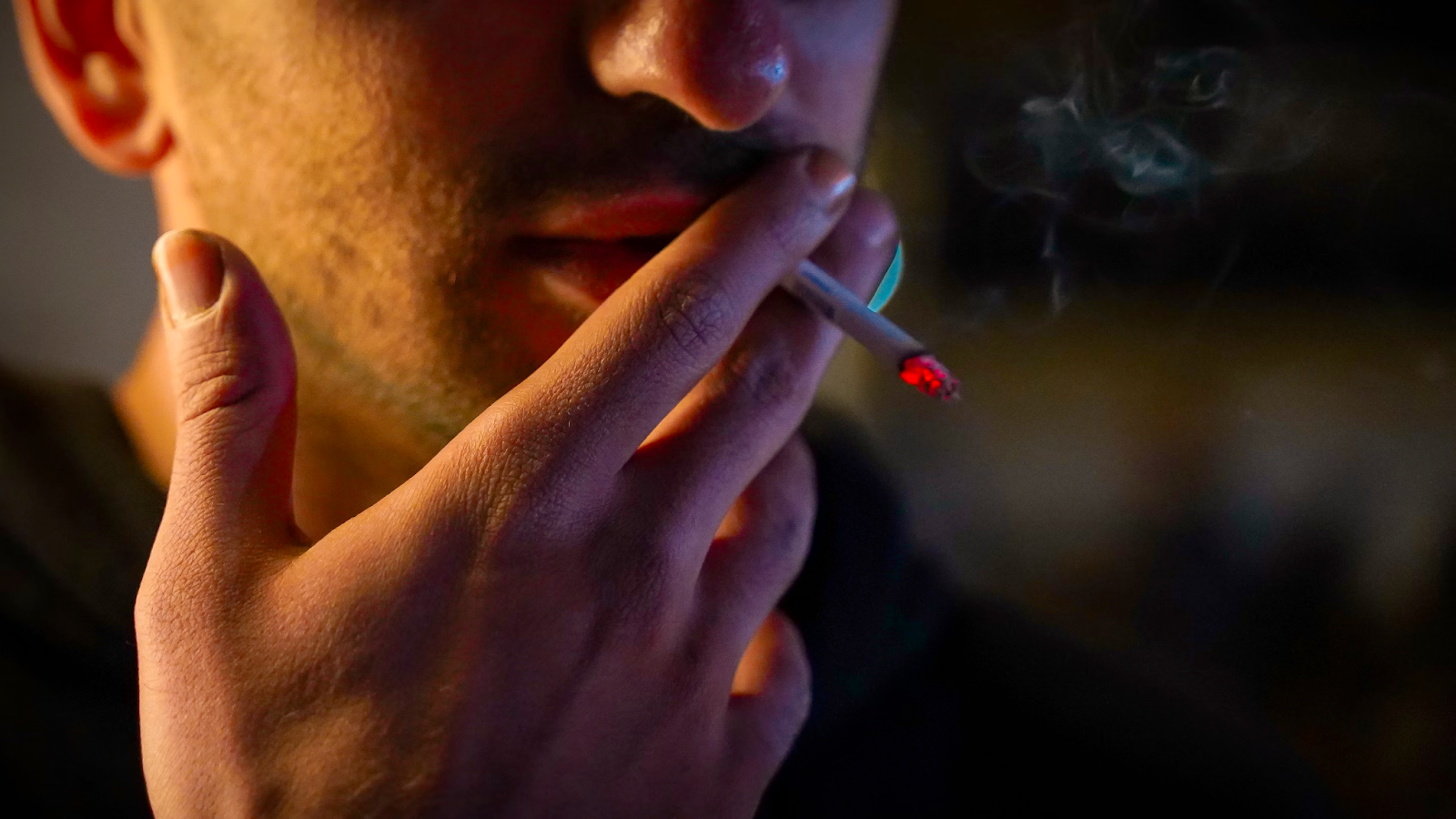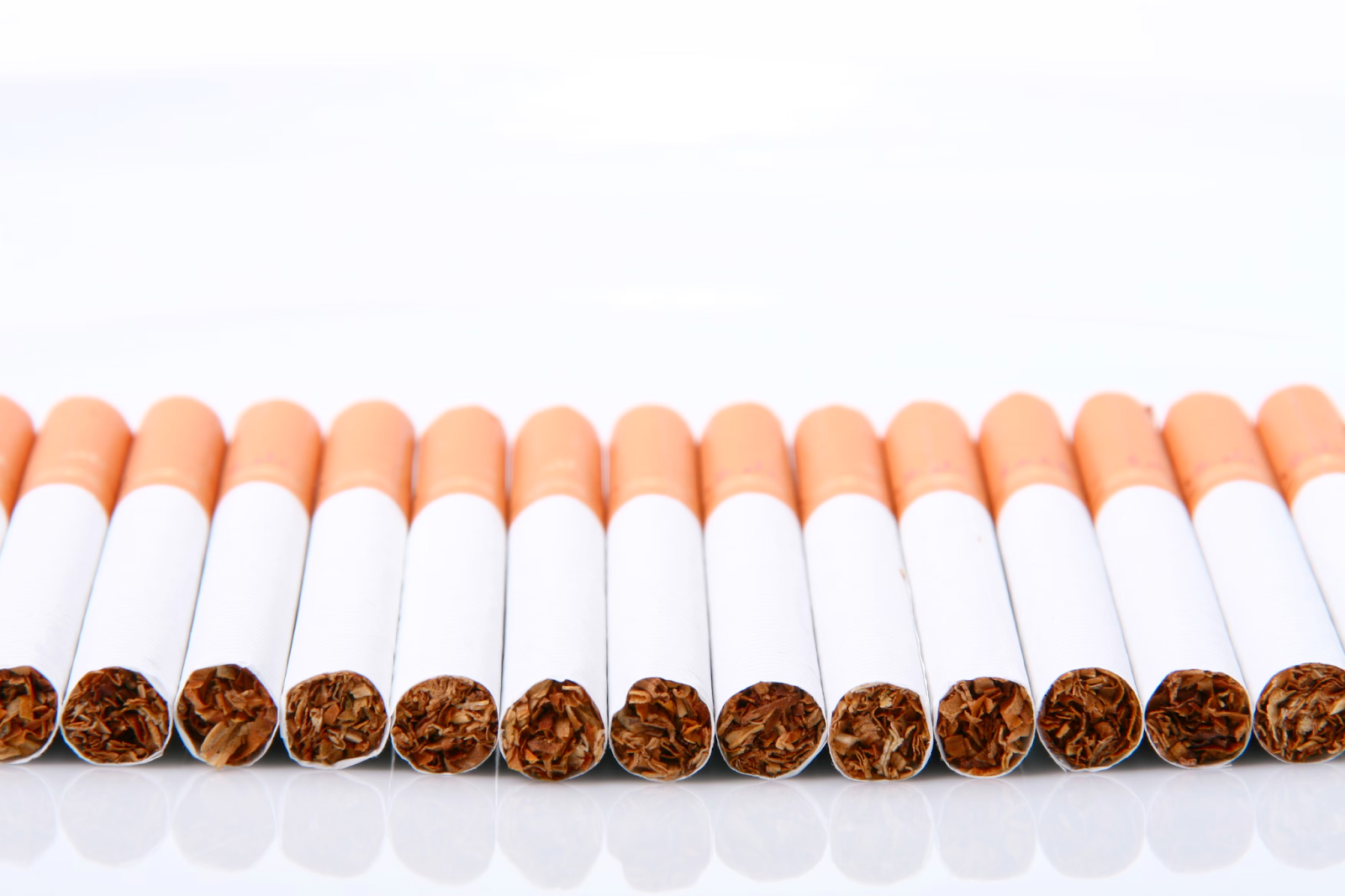Nicotine is a chemical compound found in tobacco plants and is typically inhaled through cigarettes, cigars, pipes, vaping devices, or hookahs.

Image by Reza Mehrad via Unsplash.
While nicotine is not an illegal drug (for those over the age of 18), there are various circumstances and times when a person may be required to perform a nicotine test.
In this post, we discuss the various situations where you may be required to complete a nicotine test, how long the chemical stays in the body, what the tests measure, and much more.
How Long Does Nicotine Stay in Your System?
Typically, tests can only detect nicotine in the system for a few hours after consumption. Cotinine, however, is a different story.
Cotinine is a metabolite of nicotine that provides a more accurate and detailed look at your nicotine exposure. Cotinine is detectable in blood and urine samples for up to seven days after nicotine consumption.
Because the presence of cotinine is a typical indication of nicotine consumption, many companies and organizations use these kinds of drug tests to determine whether people have tobacco exposure.
Generally speaking, here’s how long nicotine (and cotinine) may be present in your system, depending on the type of nicotine test you take.
-
Urine: between 3 and 20 days
-
Blood: 48 hours to 21 days
-
Saliva: 24 hours to 14 days
-
Hair: Up to 90 days
How Nicotine Tests Work
Most nicotine tests are performed through urine or saliva collection, but some companies may use a specialized blood or hair test. Nicotine won’t come up on a standard blood test, though.

Image by Shaun Meintjes via Unsplash.
Saliva Test
A saliva test is the most common way to determine how much nicotine (if any) is in the body. Saliva can carry nicotine and cotinine for up to 14 days.
Hair Test
A hair test may be used to determine levels of nicotine in a chronic user. Hair tests are known to detect nicotine for anywhere from 90 days up to 12 months.
Factors Influencing How Long Nicotine Stays in Your System
Like many other drugs, the length that nicotine stays in the body depends on a few factors. Research shows there are a few primary factors that influence nicotine presence, including:
Type of Nicotine
Different tobacco products contain various levels of nicotine. For example, chewing tobacco (also known as dip) is highly concentrated. The nicotine content in a can of chewing tobacco is about the same as 80 cigarettes.
Frequency of Use
The more you consume or are exposed to nicotine, the higher the cotinine levels will be in your body. Lifelong smokers, for example, will have a much higher level of cotinine in their urine than those who rarely smoke or are exposed to secondhand smoke.
Age and Health
People over 65 typically absorb nicotine much slower than those younger. Additionally, the health and function of vital organs, including the kidney and liver, can impact how quickly nicotine metabolizes and leaves the body.
Gender and Hormones
Biologically, women typically can clear nicotine and cotinine levels more effectively from the body than men can.
Potential Situations for Nicotine Exposure
If you don’t smoke or use tobacco products, you are still at risk of nicotine exposure through your environment. This includes the following:
Secondhand Smoke
Secondhand smoke is inhaled from the burning end of a cigarette or the exhaled tobacco smoke from a smoker. If you live with someone who smokes or are in regular contact with people who smoke around you, your nicotine exposure is likely more detectable than you realize.
Nicotine Replacement Therapies
Those trying to quit smoking often rely on nicotine replacement therapy (NRT) products like a nicotine patch, gum, inhaler, throat lozenge, and nasal spray. These products provide a very low dose of nicotine to avoid the uncomfortable withdrawal symptoms that are commonly associated with quitting.
Foods
Did you know some foods have naturally occurring nicotine in them? These include cauliflower, some peppers, potatoes, and tomatoes.
Common Reasons for a Nicotine Test

Image by Ruben Bagues via Unsplash.
Since tobacco use is not illegal, you may be wondering when or why a nicotine or cotinine test would be administered. Here are some common situations where nicotine tests are utilized.
Vaping
Most e-cigarettes and vaping devices deliver nicotine just as cigarettes and cigars do. Some parents and caregivers use these kinds of tests to detect nicotine in young people in their care.
Smoking Cessation Initiatives
These tests can inform how much nicotine is in your system at the time, as well as confirm that you are no longer consuming any tobacco products.
Employment Testing
Some organizations prohibit their staff or employees from smoking or consuming any type of tobacco products, and a cotinine test is required as part of the terms of employment.
Medical Testing
To qualify for certain treatments, surgeries, and organ transplants, candidates must pass a nicotine or cotinine test. In organ transplants, this test may occur before and after the surgery to ensure the patient isn’t using tobacco.
Although uncommon, nicotine poisoning can occur after an organ transplant if the individual continues consuming tobacco. If a doctor suspects nicotine poisoning, they will likely administer a cotinine test to confirm.
Health Insurance Exams
This is less common than other scenarios, but some health insurance companies require their applicants to pass a nicotine test in order to be properly insured.
The Known Dangers of Nicotine
As an addictive chemical compound, nicotine use can be detrimental to the physical and mental health of the people who consume it in larger, more frequent quantities. The common dangers of nicotine include:
-
High blood pressure
-
Decreased immune response
-
Increased risk of cardiovascular and respiratory disorders
-
Negative impacts on reproductive health
-
Development of mood disorders, stress, and anxiety
Flushing Nicotine From the Body
There are several steps you can take to complete a nicotine detox and get your body operating properly without any chemicals in your system.
Proper Hydration
There are endless benefits to proper hydration, from immune health to improving skin tone and energy levels. Drinking plenty of water can also effectively flush nicotine from your body through urination.
Regular Exercise
When you exercise consistently, your body’s metabolic rate increases naturally. In time, a faster metabolism can help flush toxins from the body faster than for those who are sedentary. Additionally, as you sweat during exercise, nicotine and cotinine will be released.
Detoxing
Testclear’s 10-day detox is a highly effective way to clear your system of any toxins using natural ingredients over a safe time period.
Nicotine FAQs
Get all your questions answered about nicotine chemistry, exposure, and testing here.
How do you flush nicotine quickly?
Even if you stop smoking or consuming any tobacco, nicotine can be present in your system for a long time. If you’re in a pinch and must pass a urine test quickly, we recommend our Powdered Urine Kit to ensure you get the desired results.
However, if you’re interested in detoxing to rid your body of nicotine and other harmful toxins, Testclear’s Toxin Rid Detoxification is highly effective.
What if I don’t smoke but still have nicotine exposure?
This does happen, but the nicotine levels are much lower than a typical tobacco user. If you test positive but your levels are low, most companies, smoking cessation, and medical organizations will assume you live with smokers or are regularly exposed to tobacco or nicotine products.
How can I be exposed to nicotine in my environment?
Nicotine exposure can also be highly impacted by the environment where we spend time. If you live with a smoker or inhale secondhand smoke at your workplace, this is considered environmental nicotine exposure.
How do nicotine tests work?
Nicotine tests work in two ways. Qualitative, which determines the presence or absence of nicotine, or quantitative, which measures the amount of nicotine and cotinine in the body. These results help determine how often you use nicotine, if at all.
What if I’m using an NRT and have to complete a nicotine drug test?
Nicotine replacement therapy products don’t contain anabasine, but tobacco products do. If you have to complete a nicotine test, you’ll need one that tests for anabasine to prove you’re only using NRT products and not tobacco.
Pass Your Next Nicotine Test with Testclear
Suppose you smoke or are exposed to tobacco-related products. In that case, nicotine will most likely be present in your hair, blood, urine, and saliva for days after consuming or inhaling the products.
Do you have a nicotine or cotinine urine test coming up? We’ve got you covered. For over 20 years, Testclear has been in the business of providing solutions to help individuals pass drug tests worldwide.
Testing at home with our Nicotine Drug Test Kit first will give you a good idea of your nicotine or cotinine levels. Testclear has an impressive inventory of test kits, detox & cleansing products, and drug test passing kits to ensure you get the desired results. Start browsing our products today!